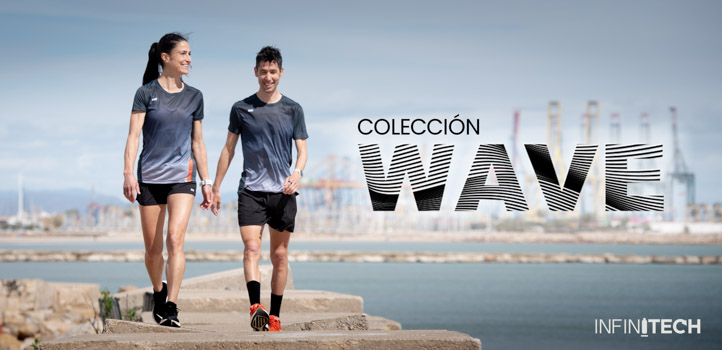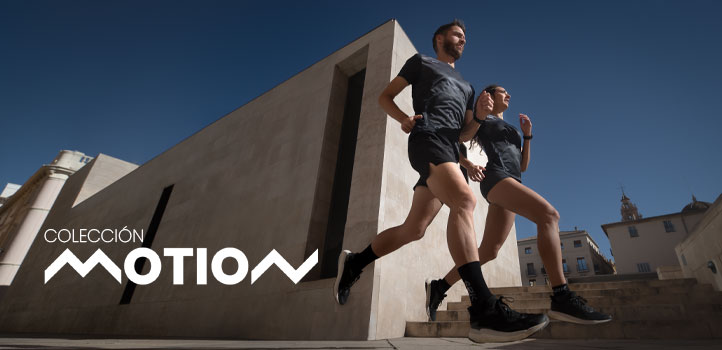Subscribe to our newsletter to find out about all the news and promotions, and automatically receive a welcome discount coupon in your email.
 These literally said: «do not fall into the habit of eating or drinking during the race; Some runners do it but it is not beneficial" and it is incredible that almost 100 years later there are those who defend this trend.
These literally said: «do not fall into the habit of eating or drinking during the race; Some runners do it but it is not beneficial" and it is incredible that almost 100 years later there are those who defend this trend.
One of the first hydration recommendations for marathon runners appeared in a book published at the beginning of the last century (JE Sullivan, 1909). They said verbatim: “do not fall into the habit of eating or drinking during the race; some runners do it but it is not beneficial ”and it is incredible that almost 100 years later, despite all the research that has been done in this area and all the information available that demonstrates the benefits of being hydrated during races and the effect progressive dehydration, some runners do not consume a drop of fluids in their workouts or competitions.
Some personal experiences, nutritional counseling for many runners, and some research will allow us to review certain concepts and beliefs that I hope will help dehydrationist runners understand the importance of consuming fluids during races and make an effort to overcome hydration limitations.
I DON'T SWEAT SO MUCH
Although the volume of fluid intake during exercise should be close to the amount of sweat that is lost during it, humans are very poor at estimating the amount of sweat that we produce during the race.
In a recent study, a group of 18 experienced runners after 16 km were asked to estimate the amount of sweat produced and this was compared to their actual losses (Passe et al, 2007); in this case they underestimated sweat loss by 43%. That is, they estimated to have lost 0,99L when in reality the loss was 1,83L.
What this research shows is that the only way to know how much sweat we lose in each workout is by recording the differences in weight before and after, since perception is not a reliable indicator of this variable and this leaves your hydration to chance.
IT DOESN'T GIVE ME SO MUCH THIRST
Of course, thirst is one of the main stimuli that we have to consume liquids, however under exercise conditions this does not seem to be a sufficient indicator to know how much to drink.
In the study noted above, even though runners had flasks of hydration beverages throughout the race and which they could drink as they wished, they were only able to replace 31% of their sweat losses.
Other studies on runners in different conditions have also shown that thirst is not a sufficient stimulus under exercise conditions to fully hydrate.
I FEEL HEAVY WHEN I DRINK
The speed with which liquids are emptied from the stomach into the intestine (gastric emptying) is very variable from one person to another. Consequently, running with liquids in the stomach can affect us differently. Paradoxically, one of the factors that accelerates the rate of gastric emptying is the volume of fluid consumed. That is, the higher the volume, the faster the stomach will empty.
Therefore, one of the best things you can do, as well as train your muscles to run, is to "train your gut" to receive fluids. You should drink progressively higher volumes in training to tolerate hydration for races or big events. The intake of a sports drink with an adequate proportion of carbohydrates (~6%) will guarantee that its components will not affect the rate of stomach emptying.
IF I DRINK, I WASTE TIME
No doubt running has a lot to do with going against the clock. If you train to improve your times and you are a track runner, say 5 or 10 thousand meters, then possibly a few seconds that you lose in a competition of these distances can make a significant difference.
In this case, due to the duration of the test, which can be less than 20 or 40 minutes and the intensity of the exercise, you will not need or it will be almost impossible to hydrate during the competition. The good news is that you simply won't have time for the dehydration to become so severe and affect your performance (unless you are exercising in a very hot environment and / or you are sweating excessively).
However, the training for these distances is usually longer (and divided), so you should not neglect your hydration in preparation for these races. Likewise, you must make sure that you arrive well hydrated to the test, since although you may "lose time" drinking liquids, you will not have many opportunities to hydrate yourself, either due to access to drinks or the speed of the competition.
For longer distances, or slower runners, the loss of fluids through sweat produces a progressive reduction in performance that could cause you to slow down in a more important way than the effort you will make in approaching the hydration station.
CARRYING LIQUIDS IS COMPLICATED
Here if I completely agree, the added weight of transferring fluids to ensure hydration during long runs is cumbersome and slows us down at first. However, belts that allow you to carry small bottles around the waist, allow better distribution of weight and are quite comfortable (especially after they are empty).
Another alternative may be to train on a circuit of about 2 or 3 km where a partner is present at each lap to provide us with hydration. Due to all the logistical complications that can arise to properly hydrate ourselves during training, it is again essential to guarantee that we start training well hydrated.
For this, consume about 1 to 2 glasses of sports drink before starting your training and make sure that the last urine before running is abundant and light in color.
While hydrating properly is an important strategy for good racing performance, it is also necessary to avoid the other extreme, that of excessive hydration. This is especially important in underweight runners, who do not sweat much and replace large volumes of fluids (a behavior described as dipsomania).
This can lead to a condition called hyponatremia which, while much less common than dehydration, can also be life-threatening. One of the most practical and effective ways to prevent this situation is to avoid gaining weight during exercise due to high fluid intake.
Undoubtedly, in all this time the hydration recommendations have undergone a radical change, for example the American College of Sports Medicine (ACSM, 2007), points out that: “subjects should drink periodically during exercise (to the extent that the opportunities allow); if this does not happen they will become excessively dehydrated ”.
Therefore, having a good hydration plan is possibly one of the nutritional care with the greatest impact that we can carry out to guarantee the speed of our race.
RECOMMENDATIONS
1. Weigh yourself before and after training. This is one of the best tools you have to estimate how much fluid you need during exercise. If you lose 1 kg of weight in one hour of running, that is equivalent to the loss of 1 liter of sweat. Therefore, the idea is to take fractional shots to try to drink a volume equivalent to those losses.
2. If you drink liquids during the training in which you measure your weight, the volume you consume must be added to the weight lost. That is, if you lost 1 kg of weight and drank 250 mL during race hour, you actually lost 1,25 L of sweat.
3. If you want to be even more specific in this calculation, you must subtract the volume of urine you produce during exercise from the amount obtained. (although this is rarely more than 200 mL per hour).
4. In races of more than 2 hours, there may be an overestimation error of 5 to 15%. regarding the relationship between the weight lost and the sweat produced. Hence, you should drink this in mind for long workouts.
4. Sports drinks offer important benefits for hydration in races.
- They have flavor and sodium, which encourages a more complete intake of fluids during exercise;
- They have carbohydrates, which provide energy to the muscles during the race, this can allow you to go faster for longer. Likewise, these carbohydrates help you recover after exercise.
– Finally, due to its content of electrolytes such as sodium and potassium, they help to replenish the losses that occur in sweat.
6. Start drinking before you are thirsty since when this happens it is likely that you are somewhat dehydrated. Also, since it's difficult to drink during the race, starting to drink early is a good strategy.
Article provided by the Gatorade Institute of Sports Sciences
3 comments on "The importance of hydration during exercise."
Leave your comment
Other entries that they may interest you.
42K · All rights reserved


It is super important to hydrate, as you can see in this link http://aguasalud.es/cuan-importante-es-beber-agua/
Excellent contribution, since there are always misconceptions that it is only important to hydrate when we sweat a lot or on certain very special occasions. It is very important to be well hydrated day after day so as not to have deficiencies when performing any physical activity.
Thanks for commenting CEO! Cheers